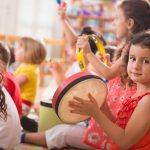How to Keep Children Occupied & Engaged Over the Holidays
The holiday season is just around the corner and it’s a wonderful time to spend with family, friends and loved ones. It’s a time for parents and children to recharge and enjoy holiday food and activities and make memories together.
As a parent, you may also be wondering about what to do at home to keep your child’s holiday season practical and fulfilling, while providing them with plenty of time for activities and practical life lessons.
Start with Practical Life Lessons
There is so much activity happening around the house during the holidays, from decorating to baking festive treats, to preparing large family meals. Including your child in meal preparation, cleaning up, setting the table and other holiday activities around the home will make them feel included and like a vital part of the family. It will also teach them confidence, coordination and independence. It’s especially important to get children involved if they ask to help — it’s essential to get them engaged when they express an interest.
Teach Good Manners
Holiday dinners and family gatherings around the holidays are times for bonding and forging relationships and this is essential to your child’s emotional development. These situations are still new to children and if they’re unsure of their place or how to act, it can be quite stressful for them. Before you have extended family or friends over, show your children what appropriate table manners are and remind them when to say ‘Please’ and ‘Thank you’. You may wish to have a “fancy” meal at home so they can practice in real world situation. With this knowledge, they’ll feel more confident, learn the importance of kindness and respect, and be well equipped for these social situations.
Focus on Food & Invite Them to Participate
Food preparation provides so many opportunities for children to participate, at almost any age. Young children can help with simple tasks like cleaning vegetables or mixing and pouring ingredients. Older children may be able to help with peeling, cutting, chopping and measuring ingredients or following directions for a recipe. By participating, they’ll be able to feel fulfilled and helpful and they will learn life skills that they can use every day.
Teaching practical life skills is one of the most important parts of a Montessori education and a child’s development. Learn more about how you can help your child with practical life lessons from Montessori School of Wellington in Guelph.









